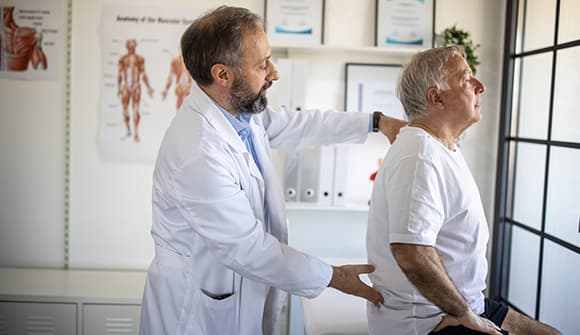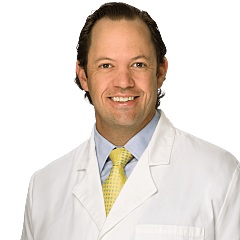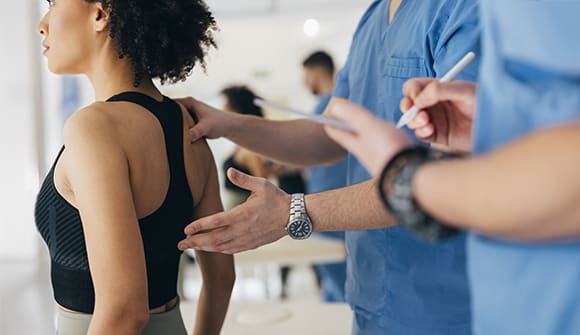Straight talk: adult scoliosis
Developing a curved spine is part of the aging process.
Article Date:

When is the last time you thought about scoliosis as an adult? For many, the concern of developing an abnormal curvature of the spine fades once they pass adolescence and stop growing. Although scoliosis is most associated with children, adults can also develop the condition, and it’s quite different from the childhood variety.
Adults typically have what’s known as degenerative scoliosis, which is a byproduct of the body’s natural aging process. Think of the spine as the scaffolding that carries the weight of our bodies. As we age, the joints and disks in our spine begin to deteriorate and can eventually collapse.
“When this happens, people who have had a normal spine for most of their lives can develop a curve in their back,” said neurosurgeon Adam Polifka, MD, with Lyerly Neurosurgery at Baptist Health.
Scoliosis throws off natural balance
People with scoliosis often lose the natural S-shape of their spine.
“When we look at someone straight on, the spine appears to be straight up and down, but if you look at them from the side, you should see an ‘S’ shape where the head is perfectly positioned over the pelvis,” explained Dr. Polifka.
With the head and pelvis balanced, the head, neck and core muscles can relax. But the spine straightens as it degenerates, pushing the head forward.
“This forward-leaning posture is incredibly painful because our back muscles have to work constantly to keep us from falling over,” Dr. Polifka said.
Most of Dr. Polifka’s patients with degenerative scoliosis are in their 70s and 80s and come to him with lower back pain or a combination of back and leg pain caused by compressed nerves as the spine twists or shifts.
“We’re only just now beginning to understand the full impact of scoliosis in adults,” said Dr. Polifka. “It’s actually quite disabling. Studies have shown that severe forms of degenerative scoliosis are equivalent to other major illnesses like heart disease, cancer and lung disease in terms of how it affects the quality and length of someone’s life.”
When pain prevents everyday movement, muscles begin to atrophy (waste away), and a general lack of cardiovascular fitness can lead to rapid decline, he added.
Nonsurgical scoliosis treatments
Physical therapy is one of the most common nonsurgical options used to treat mild forms of scoliosis.
“It can help increase flexibility, range of motion and core muscle strength, and help people improve their quality of life to a point where they're happy with what they can do,” Dr. Polifka said.
Other nonsurgical scoliosis treatments for adults include epidural steroid or nerve block injections, acupuncture and sessions with a chiropractor.
Advances in scoliosis surgery
Dr. Polifka sees surgery as “the last line of defense” for his patients.
“How aggressive we get is really driven by the patient and his or her needs,” he said.
Often, the goal isn’t to correct the entire curvature of the spine but to relieve pain and regain mobility and muscle strength, and there are several minimally invasive surgical options for this. One of the most common procedures Dr. Polifka performs is the spinal decompression of a single nerve through a very small incision in the back.
Fortunately, spinal surgery has come a long way in recent years. Major spinal reconstructions used to involve large incisions and rods and screws.
“Now, we’re able to do much of the same corrective work using modern, minimally invasive techniques that only require small incisions,” said Dr. Polifka. That means less scar tissue, reduced risks of infection or damage to healthy tissue and less post-operative pain.
Recovery times are also drastically reduced.
“People are now back to about 80% within four to six weeks as opposed to six to 12 months,” Dr. Polifka said.
If you’re experiencing worsening pain in your back or legs, you can request an appointment with a Lyerly neurosurgeon at baptistjax.com/back or by calling 904.202.BACK (2225).




